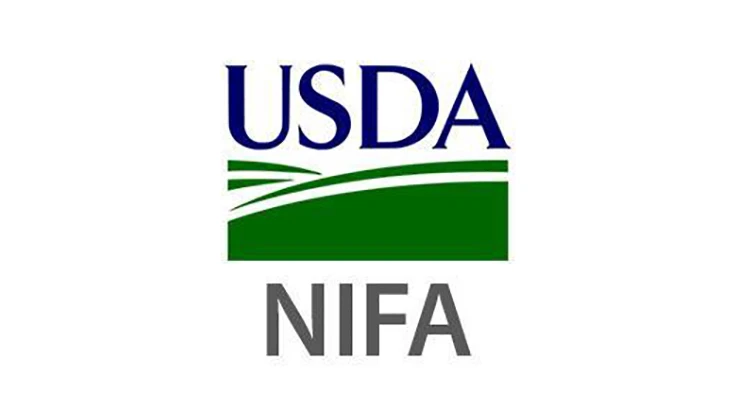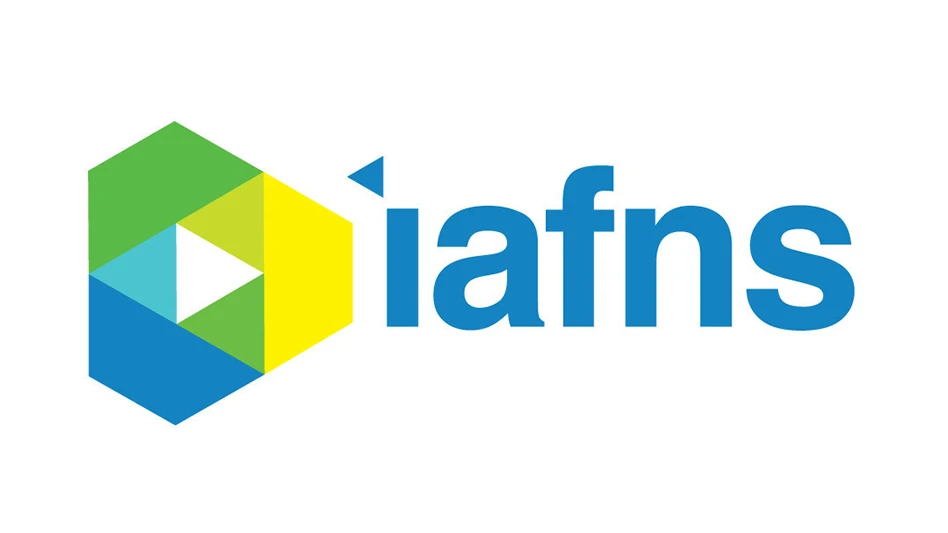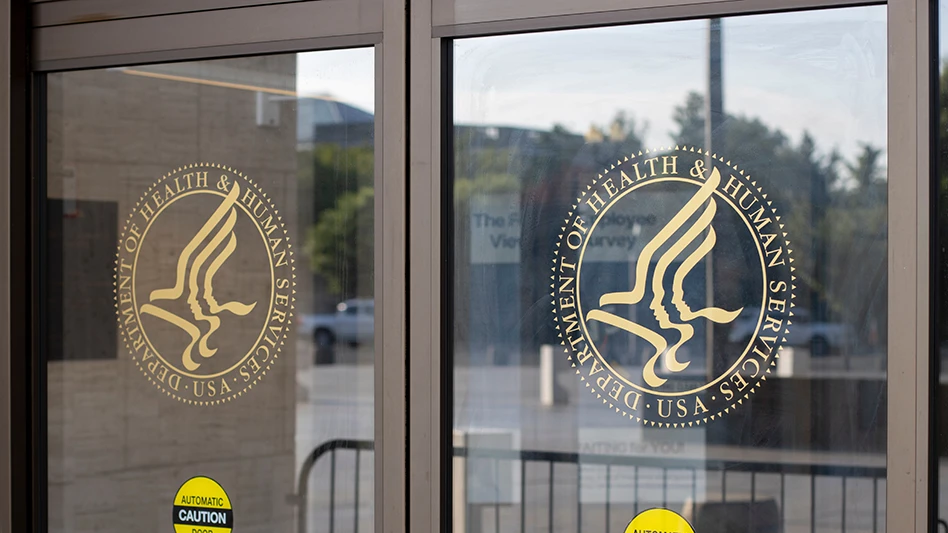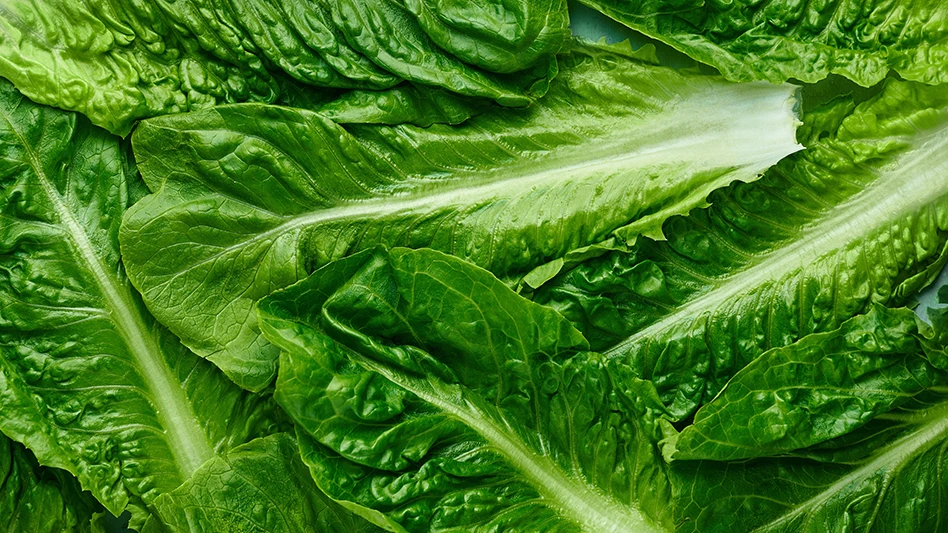
WASHINGTON, Nov. 29, 2017 – The U.S. Department of Agriculture's (USDA) National Institute of Food and Agriculture (NIFA) announced support for research, education, and extension projects that promote a safe, nutritious food supply. The funding is made possible through NIFA’s Agriculture and Food Research Initiative (AFRI) program, authorized by the 2014 Farm Bill.
“Each year, 1 in 6 Americans gets sick consuming contaminated foods or beverages,” said NIFA Director Sonny Ramaswamy. “NIFA support enables scientists to investigate and develop innovative approaches to detect and control microbial and other contaminants in our food, contributing to the production of safe, high-quality, nourishing food.”
AFRI is America’s flagship competitive grants program for foundational and translational research, education, and extension projects in the food and agricultural sciences. These awards are made through two grant programs: AFRI Foundational: Food Safety, Nutrition, and Health, and the AFRI Food Safety Challenge Area. These investments seek to increase our understanding of the microbial, chemical, and physical safety and quality of foods, as well as protect consumers from contaminants at every stage of the food chain, from production to consumption.
Among the FY16 foundational projects, NIFA and the National Peanut Board, under the commodity board provision in the 2014 Farm Bill, are co-funding USDA Agricultural Research Service work to develop reliable diagnostic tests for peanut and tree nut allergies. As part of NIFA’s partnership with the U.S.-Israel Binational Agricultural Research and Development Fund, the University of California, Davis, will study how harmful Salmonella bacteria colonize lettuce crops. The results may inform pre-harvest food safety methods in the fresh produce industry.
This set of awards also includes a project where University of Minnesota researchers will investigate the use of cold plasma technology to decontaminate food and food-processing surfaces. Ohio State University researchers will develop BPA (bisphenol A) free coatings to improve the safety and maintain the shelf life of canned foods. BPA is an industrial chemical thought to have significant negative effects on human health.
Fiscal Year 2016 grants, which include 59 grants, totaling $24 million were awarded. They include:
AFRI Foundational Program: Improving Food Safety
University of California, Davis, California, $495,482
University of California, Davis, California, $499,893
California State University, Northridge, California, $150,000
University of Connecticut, Storrs, Connecticut, $150,000
University of Connecticut, Storrs, Connecticut, $150,000
University of Delaware, Newark, Delaware, $230,690
University of Florida, Gainesville, Florida, $500,000
Florida International University, Miami, Florida, $258,253
Illinois Institute of Technology, Chicago, Illinois, $258,253
University of Maryland, College Park, Maryland, $13,500
Michigan State University, East Lansing, Michigan, $498,599
Michigan State University, East Lansing, Michigan, $499,118
University of Minnesota, St. Paul, Minnesota, $498,234
University of Southern Mississippi, Hattiesburg, Mississippi, $500,000
USDA Agricultural Research Service, Stoneville, Mississippi, $489,804
Cornell University, Ithaca, New York, $50,000
Cleveland State University, Cleveland, Ohio, $258,253
University of South Carolina, Columbia, South Carolina, $499,862
Texas A&M AgriLife Research, College Station, Texas, $230,691
Partnership for Food Safety Education, Arlington, Virginia, $49,984
AFRI Foundational Program: Function and Efficacy of Nutrients
University of Arizona, Tucson, Arizona, $25,802
University of California, Davis, California, $469,257
University of Connecticut, Storrs, Connecticut, $150,000
Florida State University, Tallahassee, Florida, $470,000
University of Illinois, Urbana, Illinois,$504,616
University of Illinois, Chicago, Illinois, $470,000
Tufts University, Boston, Massachusetts, $471,657
Tufts University, Boston, Massachusetts, $469,884
Tufts University, Boston, Massachusetts, $469,994
Montana State University, Bozeman, Montana, $150,000
University of Nebraska, Lincoln, Nebraska, $469,949
Oregon State University, Corvallis, Oregon, $470,667
Pennsylvania State University, State College, Pennsylvania, $469,648
University of Rhode Island, Kingston, Rhode Island, $470,000
Virginia Polytechnic Institute and State University, Blacksburg, Virginia, $505,587
AFRI Foundational Program: Improving Food Quality
California State University, Los Angeles, California, $149,998
University of Connecticut, Storrs, Connecticut, $149,801
University of Florida, Gainesville, Florida, $404,435
Purdue University, West Lafayette, Indiana, $452,675
Purdue University, West Lafayette, Indiana, $363,822
Purdue University, West Lafayette, Indiana, $361,237
University of Maine, Orono, Maine, $8,781
Mississippi State University, Mississippi State, Mississippi, $454,986
Rutgers, The State University of New Jersey, New Brunswick, New Jersey, $454,735
Cornell University, Ithaca, New York, $455,000
The Ohio State University, Columbus, Ohio, $454,964
The Ohio State University, Columbus, Ohio, $441,291
Oklahoma State University, Stillwater, Oklahoma, $149,980
Utah State University, Logan, Utah, $454,404
Virginia Polytechnic Institute and State University, Blacksburg, Virginia, $454,741
University of Wisconsin, Madison, Wisconsin, $454,361
AFRI Foundational Program: Understanding Antimicrobial Resistance
Beckman Research Institute of the City of Hope, Duarte, California, $387,518
Cornell University, Ithaca, New York, $499,982
AFRI Food Safety Challenge Area: Effective Mitigation Strategies for Antimicrobial Resistance
Iowa State University of Science and Technology, Ames, Iowa, $1,199,994
Michigan State University, East Lansing, Michigan, $50,000
University of Nebraska, Lincoln, Nebraska, $1,200,000
Virginia Polytechnic Institute and State University, Blacksburg, Virginia, $1,200,000
University of Wisconsin, Madison, Wisconsin, $1,200,000
AFRI Food Safety Challenge Area: Assessment of the AFRI Food Safety Challenge Area
Research Triangle Institute, Research Triangle Park, North Carolina, $300,000
More information on these projects is available on the NIFA website.
Among previously funded projects, University of Rochester and Cornell University scientists investigated compounds in wine grapes and pomace, a fermented grape mash and waste product, discovering that they inhibit tooth decay. A product that prevents tooth decay can be made from this readily available waste and would have significant societal benefits. Purdue University researchers investigated developing carbohydrates that digest slowly, trigger feelings of satiety, and control nutrient delivery rate to the body. The study shows that dietary carbohydrates, if delivered properly, can support weight management.
Among past AFRI Food Safety Challenge Area projects, scientists at Kansas State and Texas A&M Universities successfully launched a website, KSUantibiotics.org (link is external). The website offers resources on how to manage use of these drugs in animals while conserving their effectiveness for humans.
A project at Washington State University (link is external) is investigating how a combination of biology, psychology, and ecology can be used to mitigate antibiotic resistance in livestock production. The scientists found that specific factors, such as positive rewards from supervisors, motivated how animal care providers used antibiotics.
NIFA’s mission is to invest in and advance agricultural research, education, and extension to solve societal challenges. NIFA’s investments in transformative science directly support the long-term prosperity and global preeminence of U.S. agriculture. To learn more about NIFA’s impact on agricultural sciences, visit www.nifa.usda.gov/Impacts, sign up for email updates, or follow us on Twitter @USDA_NIFA, #NIFAImpacts.
“Each year, 1 in 6 Americans gets sick consuming contaminated foods or beverages,” said NIFA Director Sonny Ramaswamy. “NIFA support enables scientists to investigate and develop innovative approaches to detect and control microbial and other contaminants in our food, contributing to the production of safe, high-quality, nourishing food.”
AFRI is America’s flagship competitive grants program for foundational and translational research, education, and extension projects in the food and agricultural sciences. These awards are made through two grant programs: AFRI Foundational: Food Safety, Nutrition, and Health, and the AFRI Food Safety Challenge Area. These investments seek to increase our understanding of the microbial, chemical, and physical safety and quality of foods, as well as protect consumers from contaminants at every stage of the food chain, from production to consumption.
Among the FY16 foundational projects, NIFA and the National Peanut Board, under the commodity board provision in the 2014 Farm Bill, are co-funding USDA Agricultural Research Service work to develop reliable diagnostic tests for peanut and tree nut allergies. As part of NIFA’s partnership with the U.S.-Israel Binational Agricultural Research and Development Fund, the University of California, Davis, will study how harmful Salmonella bacteria colonize lettuce crops. The results may inform pre-harvest food safety methods in the fresh produce industry.
This set of awards also includes a project where University of Minnesota researchers will investigate the use of cold plasma technology to decontaminate food and food-processing surfaces. Ohio State University researchers will develop BPA (bisphenol A) free coatings to improve the safety and maintain the shelf life of canned foods. BPA is an industrial chemical thought to have significant negative effects on human health.
Fiscal Year 2016 grants, which include 59 grants, totaling $24 million were awarded. They include:
AFRI Foundational Program: Improving Food Safety
University of California, Davis, California, $495,482
University of California, Davis, California, $499,893
California State University, Northridge, California, $150,000
University of Connecticut, Storrs, Connecticut, $150,000
University of Connecticut, Storrs, Connecticut, $150,000
University of Delaware, Newark, Delaware, $230,690
University of Florida, Gainesville, Florida, $500,000
Florida International University, Miami, Florida, $258,253
Illinois Institute of Technology, Chicago, Illinois, $258,253
University of Maryland, College Park, Maryland, $13,500
Michigan State University, East Lansing, Michigan, $498,599
Michigan State University, East Lansing, Michigan, $499,118
University of Minnesota, St. Paul, Minnesota, $498,234
University of Southern Mississippi, Hattiesburg, Mississippi, $500,000
USDA Agricultural Research Service, Stoneville, Mississippi, $489,804
Cornell University, Ithaca, New York, $50,000
Cleveland State University, Cleveland, Ohio, $258,253
University of South Carolina, Columbia, South Carolina, $499,862
Texas A&M AgriLife Research, College Station, Texas, $230,691
Partnership for Food Safety Education, Arlington, Virginia, $49,984
AFRI Foundational Program: Function and Efficacy of Nutrients
University of Arizona, Tucson, Arizona, $25,802
University of California, Davis, California, $469,257
University of Connecticut, Storrs, Connecticut, $150,000
Florida State University, Tallahassee, Florida, $470,000
University of Illinois, Urbana, Illinois,$504,616
University of Illinois, Chicago, Illinois, $470,000
Tufts University, Boston, Massachusetts, $471,657
Tufts University, Boston, Massachusetts, $469,884
Tufts University, Boston, Massachusetts, $469,994
Montana State University, Bozeman, Montana, $150,000
University of Nebraska, Lincoln, Nebraska, $469,949
Oregon State University, Corvallis, Oregon, $470,667
Pennsylvania State University, State College, Pennsylvania, $469,648
University of Rhode Island, Kingston, Rhode Island, $470,000
Virginia Polytechnic Institute and State University, Blacksburg, Virginia, $505,587
AFRI Foundational Program: Improving Food Quality
California State University, Los Angeles, California, $149,998
University of Connecticut, Storrs, Connecticut, $149,801
University of Florida, Gainesville, Florida, $404,435
Purdue University, West Lafayette, Indiana, $452,675
Purdue University, West Lafayette, Indiana, $363,822
Purdue University, West Lafayette, Indiana, $361,237
University of Maine, Orono, Maine, $8,781
Mississippi State University, Mississippi State, Mississippi, $454,986
Rutgers, The State University of New Jersey, New Brunswick, New Jersey, $454,735
Cornell University, Ithaca, New York, $455,000
The Ohio State University, Columbus, Ohio, $454,964
The Ohio State University, Columbus, Ohio, $441,291
Oklahoma State University, Stillwater, Oklahoma, $149,980
Utah State University, Logan, Utah, $454,404
Virginia Polytechnic Institute and State University, Blacksburg, Virginia, $454,741
University of Wisconsin, Madison, Wisconsin, $454,361
AFRI Foundational Program: Understanding Antimicrobial Resistance
Beckman Research Institute of the City of Hope, Duarte, California, $387,518
Cornell University, Ithaca, New York, $499,982
AFRI Food Safety Challenge Area: Effective Mitigation Strategies for Antimicrobial Resistance
Iowa State University of Science and Technology, Ames, Iowa, $1,199,994
Michigan State University, East Lansing, Michigan, $50,000
University of Nebraska, Lincoln, Nebraska, $1,200,000
Virginia Polytechnic Institute and State University, Blacksburg, Virginia, $1,200,000
University of Wisconsin, Madison, Wisconsin, $1,200,000
AFRI Food Safety Challenge Area: Assessment of the AFRI Food Safety Challenge Area
Research Triangle Institute, Research Triangle Park, North Carolina, $300,000
More information on these projects is available on the NIFA website.
Among previously funded projects, University of Rochester and Cornell University scientists investigated compounds in wine grapes and pomace, a fermented grape mash and waste product, discovering that they inhibit tooth decay. A product that prevents tooth decay can be made from this readily available waste and would have significant societal benefits. Purdue University researchers investigated developing carbohydrates that digest slowly, trigger feelings of satiety, and control nutrient delivery rate to the body. The study shows that dietary carbohydrates, if delivered properly, can support weight management.
Among past AFRI Food Safety Challenge Area projects, scientists at Kansas State and Texas A&M Universities successfully launched a website, KSUantibiotics.org (link is external). The website offers resources on how to manage use of these drugs in animals while conserving their effectiveness for humans.
A project at Washington State University (link is external) is investigating how a combination of biology, psychology, and ecology can be used to mitigate antibiotic resistance in livestock production. The scientists found that specific factors, such as positive rewards from supervisors, motivated how animal care providers used antibiotics.
NIFA’s mission is to invest in and advance agricultural research, education, and extension to solve societal challenges. NIFA’s investments in transformative science directly support the long-term prosperity and global preeminence of U.S. agriculture. To learn more about NIFA’s impact on agricultural sciences, visit www.nifa.usda.gov/Impacts, sign up for email updates, or follow us on Twitter @USDA_NIFA, #NIFAImpacts.
Get curated news on YOUR industry.
Enter your email to receive our newsletters.Loading...
Latest from Quality Assurance & Food Safety
- Kim Heiman Elected to Second Term as President of Wisconsin Cheese Makers Association
- FAO Launches $150 Million Plan to Restore Ukrainian Agricultural Production
- Pet Food Company Implements Weavix Radio System for Manufacturing Communication
- Penn State Offers Short Course on Food Safety and Sanitation for Manufacturers
- USDA Announces New Presidential Appointments
- FDA to Phase Out Petroleum-Based Synthetic Dyes in Food
- IFT DC Section to Host Food Policy Event Featuring FDA, USDA Leaders
- CSQ Invites Public Comments on Improved Cannabis Safety, Quality Standards







